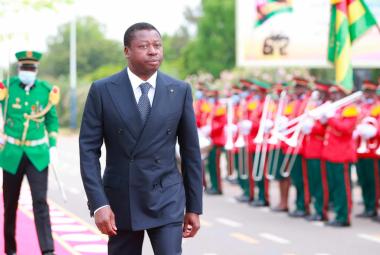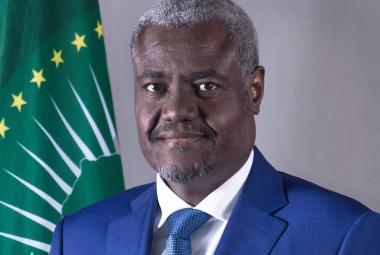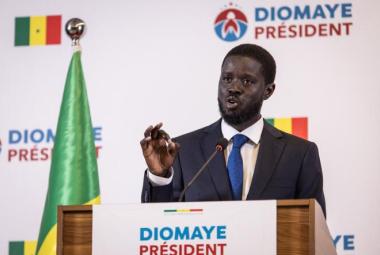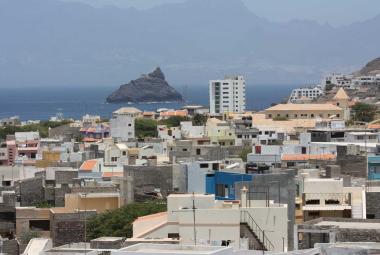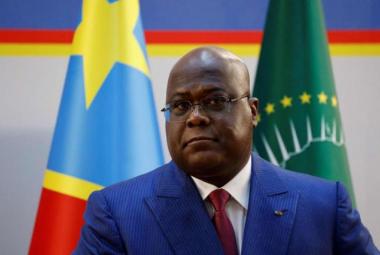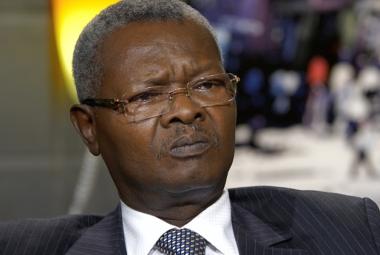I remind you every time I have the opportunity, at these many workshops, conferences, round tables, on the Sahel and West Africa: the year that ends in a few weeks already marks ten years of deep crisis in Mali, then in all its immediate vicinity, a multidimensional crisis as we say in a somewhat scholarly way. Ten years since the beginning of the armed rebellions in northern Mali and the first coup d'Etat of the new phase of political instability in the region.
Ten years during which violence, fear and the exodus of rural populations were exported to many regions of Mali, then Burkina Faso and Niger. Ten years that have come on top of another decade during which another West African country, completely connected to the Sahelian areas, the most populous and powerful country by far in the region, Nigeria, was the painful experience of extreme violence embodied by the Boko Haram group.
Just take a moment to ask yourself what could have been done more, better, differently, economically, socially, humanly, culturally, infrastructurally, in the vast area stretching from the coastal strip from southern Nigeria south of the Ivory Coast, to the north of Mali, Niger, Mauritania, coastal West Africa on the edge of the Sahara, if we had not allowed to emerge and consolidate during the last two decades have been so many areas of conflict, violence, insecurity, organized crime, polarization between ethnocultural communities, religious extremism...
Burkina Faso appears today as the country that finds itself in the most serious situation of fragility, the last two coups being only the most explicit indicator. Saving Burkina Faso is the priority among the priorities of the moment in the Sahel and in West Africa. I also said it recently in a meeting: we are tired of having to systematically talk about “Sahel and West Africa” as if they were two distinct regions with clear borders whose dynamics are not intimately linked.
Burkina Faso offers the best illustration of the inconsistency of this fragmented approach to this part of the continent: its collapse from its northern borders would also mean a permanent and vital threat to the security and stability of Benin Republic, Togo, Ghana, from Ivory Coast. In other words, everywhere in West Africa. This is one more reason for everything to be done to stop Burkina Faso's race towards the abyss.
The responsibility of those who have the power to make crucial decisions, or who are best placed to influence those who make the decisions, is to give themselves the maximum chance of not making the choices that can aggravate a situation already critical and, in a more ambitious way, to make choices that can help to gradually but resolutely go up the slope.
The responsibility of the wider community of citizens of West African countries who feel concerned about the regional security deterioration over the past ten years, or twenty, and in particular those who have worked specifically on security and political issues and have written articles, reports, formulated proposals, alerted to the increasing complexity of threats, is to continue to produce and share ideas, never to give in to the temptation of resignation.
The challenge at the end of this year 2022 is to help ensure that the West Africa of 2032 is not much more troubled, chaotic, violent than that of 2022, that the areas of insecurity are not not extended to new Sahelian and coastal territories. What is the main message that it seems urgent to me to convey? It consists of saying a few simple things:
- The search for sovereignty, for "true independence", the denunciation of neocolonialism in all its modern and subtle versions and the affirmation of a fierce desire to be respected as a nation, as a human community, as peoples, all of this is widely shared by many Africans. And legit. All this speaks a lot to African youth, particularly to those in countries that have experienced French colonization. But the interest for a country to be more and more sovereign, but also more and more weak and more and more destroyed is limited.
- "Sankarism", what it conveys as values, as determination, as self-sacrifice for the general interest, for that of the nation, this is, remains and must remain a formidable heritage to be cultivated, to be summoned for inspire political action, public action, collective action, individual action and behavior. In the country of Thomas Sankara, Burkina Faso, as in the other countries of the region and well beyond. But in 2022-2023, in countries whose States no longer control large parts of their territories, which have millions of displaced people who must be fed, integrated into new localities with limited infrastructure and economic opportunities, ideological convictions , determination, the will to serve the nation, personal courage, are not enough to guarantee results in terms of restoring security and national cohesion. In Burkina Faso, Mali and Niger, what will count for the next few months and years are the concrete security, economic and social results for the populations, wherever they live in their respective national territories. Patriotic slogans will not suffice.
- When you face so many challenges and the initial situation is very difficult, in terms of threats and in terms of the limited resources available to respond to them, from the design of strategies to the effective implementation of actions on the field, the rulers of a country must draw ideas from everywhere, within their society and outside it. To feed their reflections, their decisions and the rapid correction of the latter when they do not give results. It is generally not in a context where the political classes, civil societies, the media, and all those who think freely are locked in, that decision-makers have the best chance of benefiting from the individual intelligence of their fellow citizens and from the intelligence community of their society.
- This is also true for relations with neighboring countries, and even distant countries which have significant diplomatic, military and economic means of action abroad, the large, medium and small powers. In the context of great weakness of the States of the Sahel - whether they are very rich in natural resources or not, whether they have glorious imperial pasts or not - it is not a good idea to cultivate isolation in a world where interdependencies are multiple, complex and partly elusive.
Because the scenario of continued security and political deterioration is possible, one that would see 2032 or even 2027 much worse than 2022, we cannot adopt the position of detached analysts, experts, consultants, researchers specializing in the Sahel who have been writing hundreds of articles, studies and notes on the region for a decade. We cannot content ourselves with observing, describing, commenting on the slow disintegration of the region, without feeling personally concerned.
In West Africa, as everywhere else on the continent, there is tremendous energy, brilliant and generous entrepreneurs, creators eager to contribute to improving the living conditions of their fellow citizens. There is also significant progress in the region in various areas, such as energy infrastructure, driven by a few functioning regional organizations. But the potential of this region will remain largely under-exploited as long as several countries, one or two more in each new decade, hang over the threat of armed violence, the criminalization of States and the fragmentation of their societies.
Ah yes, one last message, perhaps the most important for each and every one of us: let us be careful with the use we make of our time. What more could we do to strengthen our political, security, educational, economic, social and cultural institutions if we reduced by half, or two thirds, the time spent unearthing and denouncing conspiracies – real and imaginary – hatched against each of the West African countries by "the others" and that this time was reallocated to more productive uses?
One of the keys to the future of the African continent lies in the ability of its children to resist the irrational uses of their time, in their ability to resist distractions, the offer of which has never been so massive, accessible and attractive. Those who will come out on top, in all parts of the world, are those who manage to constantly distract others from their priorities while never losing sight of the defense of their most vital interests.
By Gilles Yabi
Gilles Yabi is the founder and executive director of WATHI. He directs and supervises the activities of the think tank whose permanent team is based in Dakar (Senegal). WATHI is an open platform for the production and dissemination of knowledge and proposals on all crucial issues for the present and the future of West Africa and other regions of the continent.
*This article has been translated from French into English by Marcus Boni Teiga




